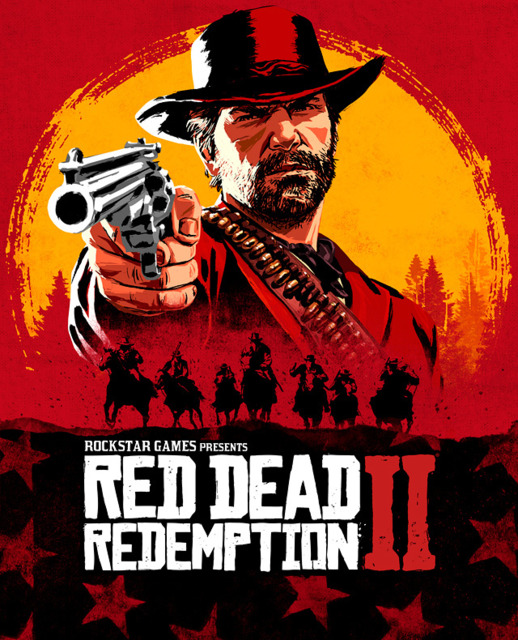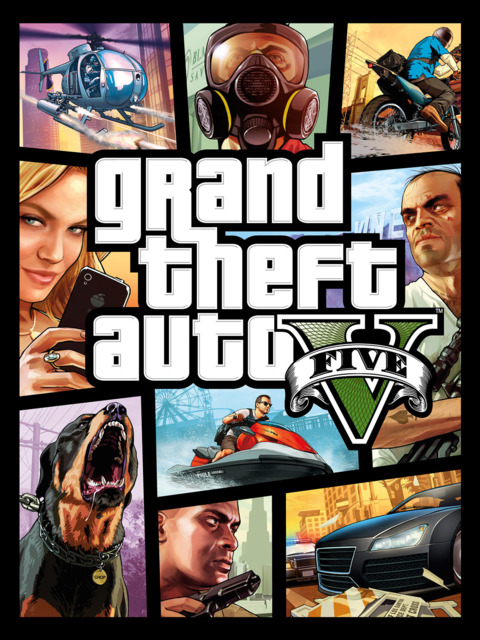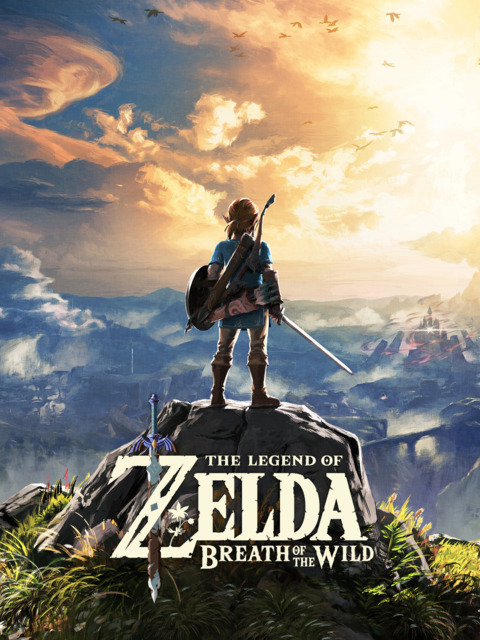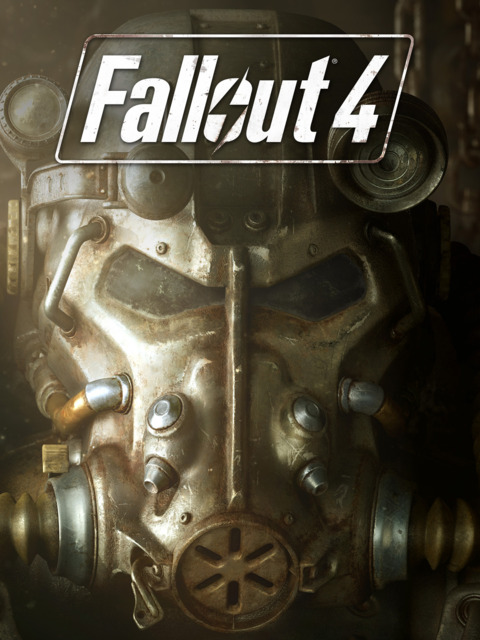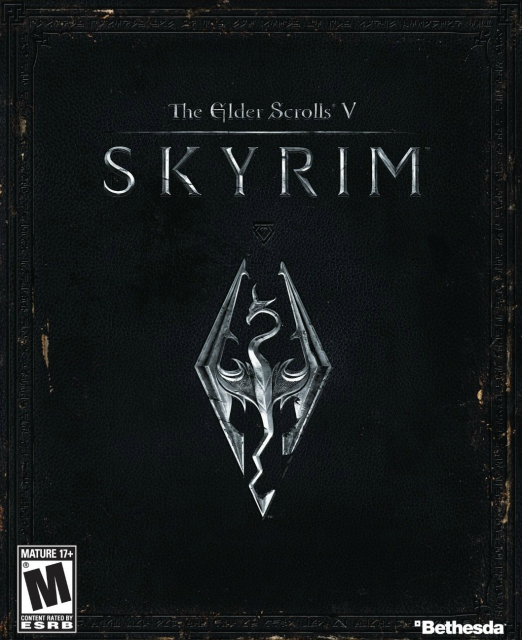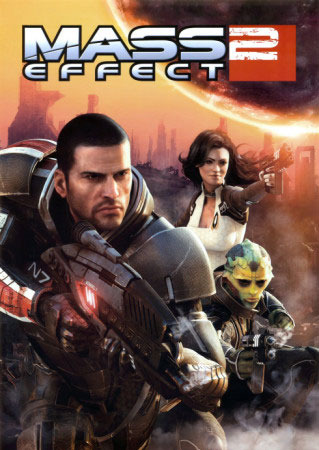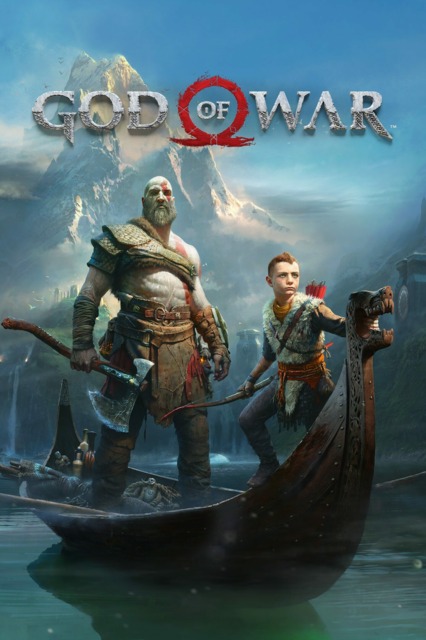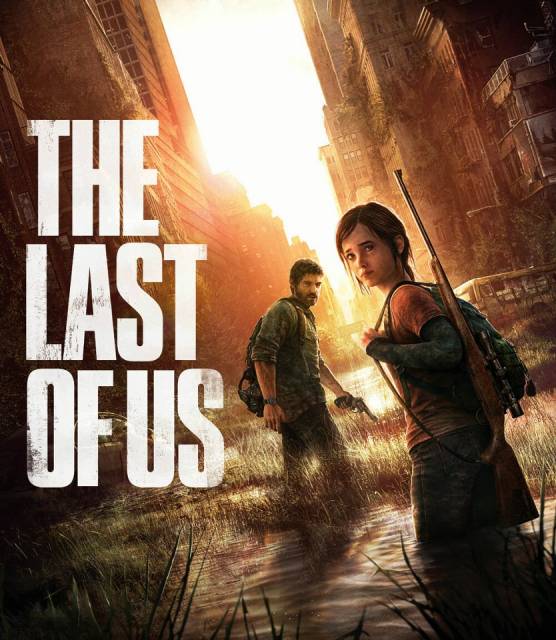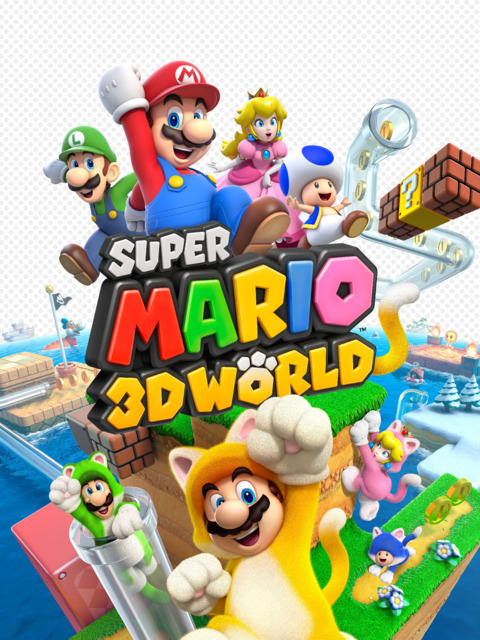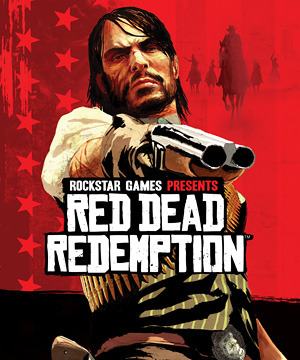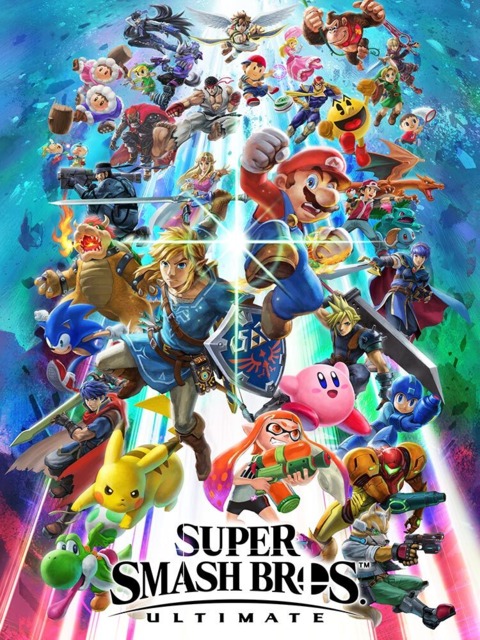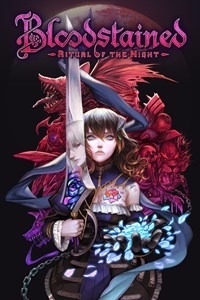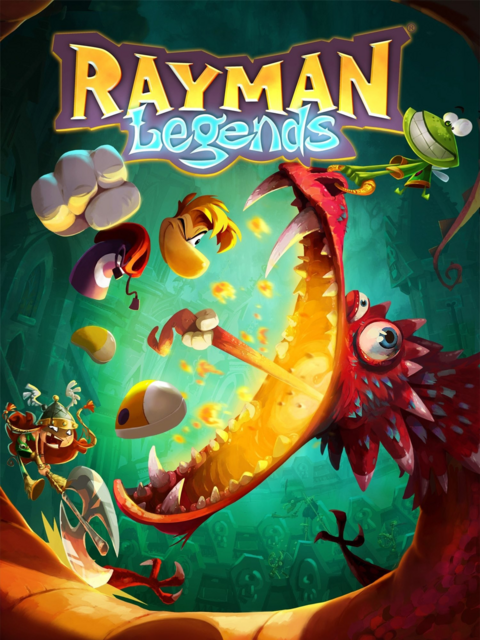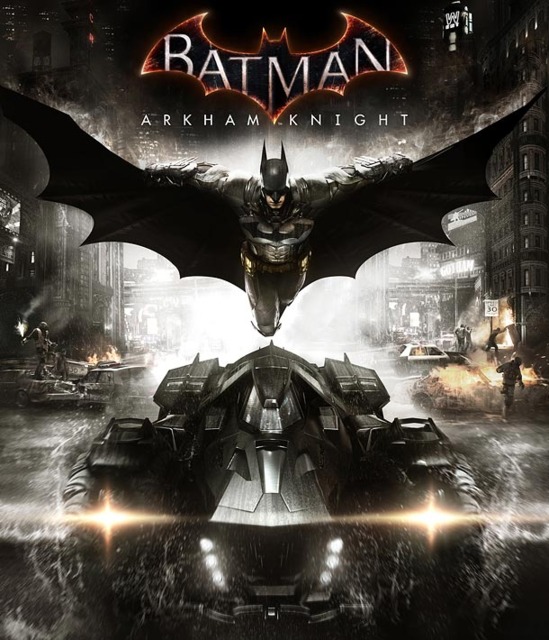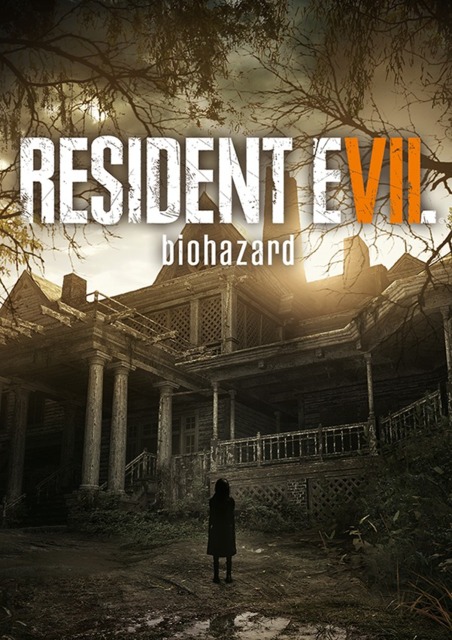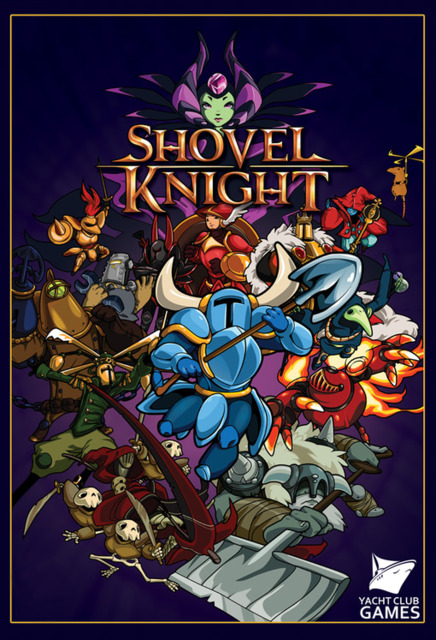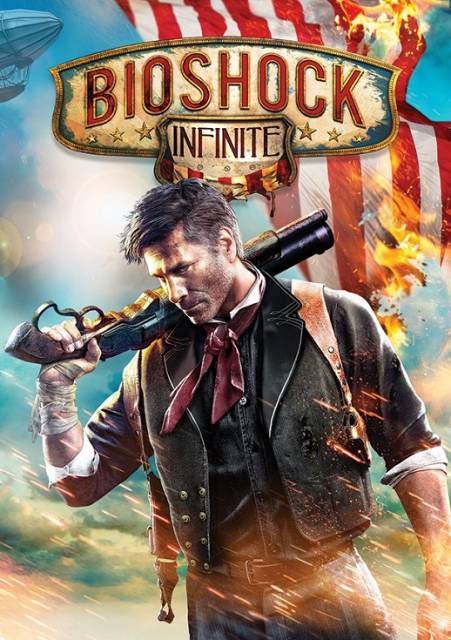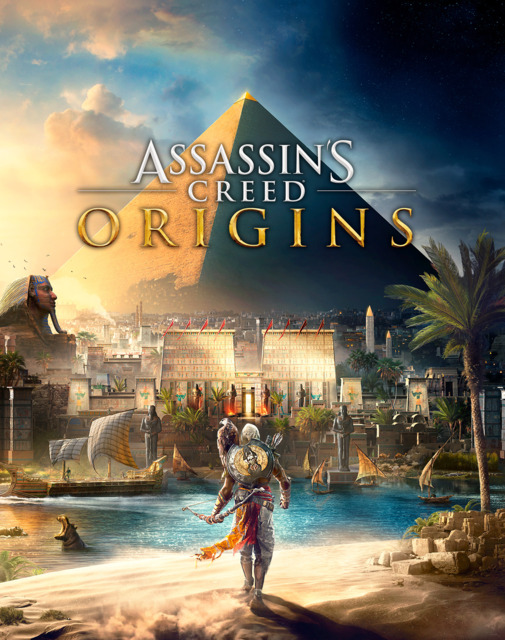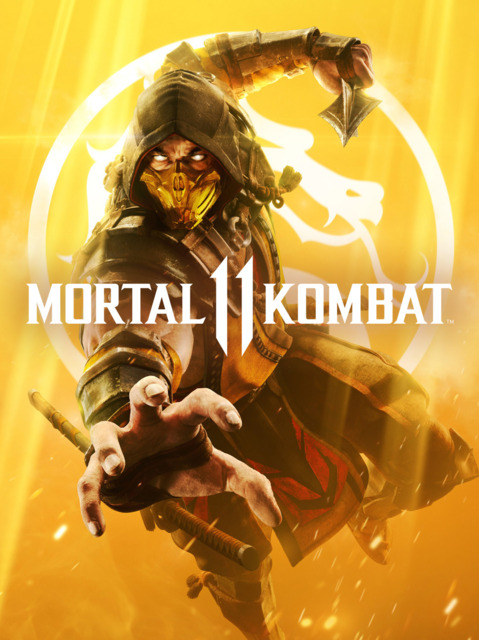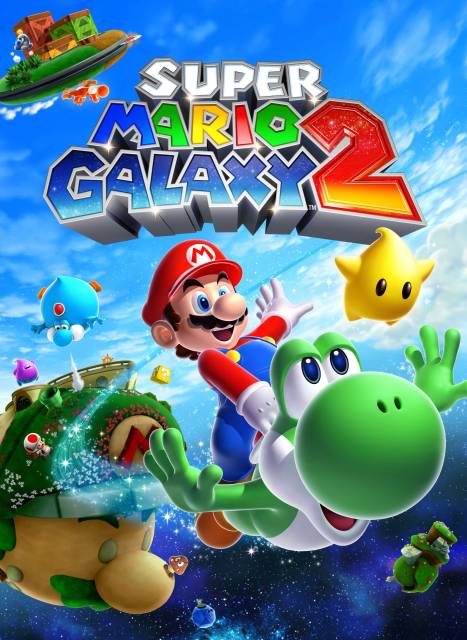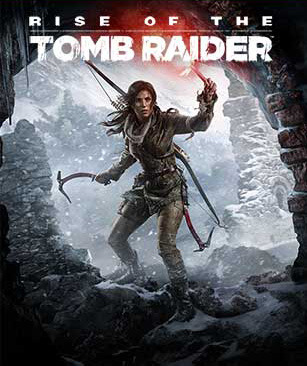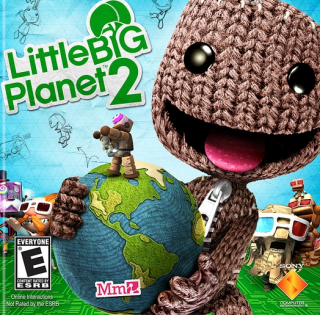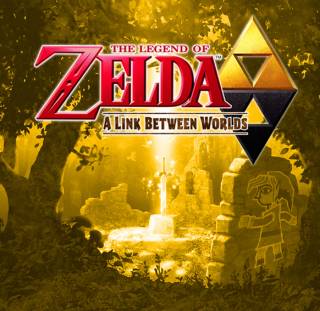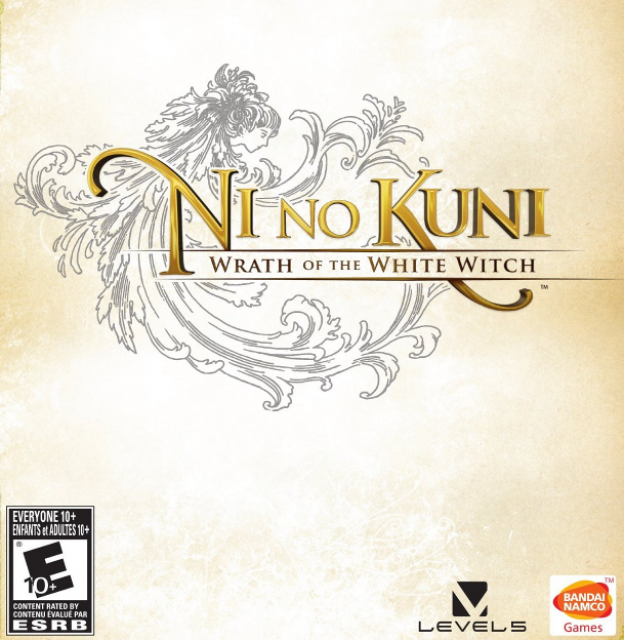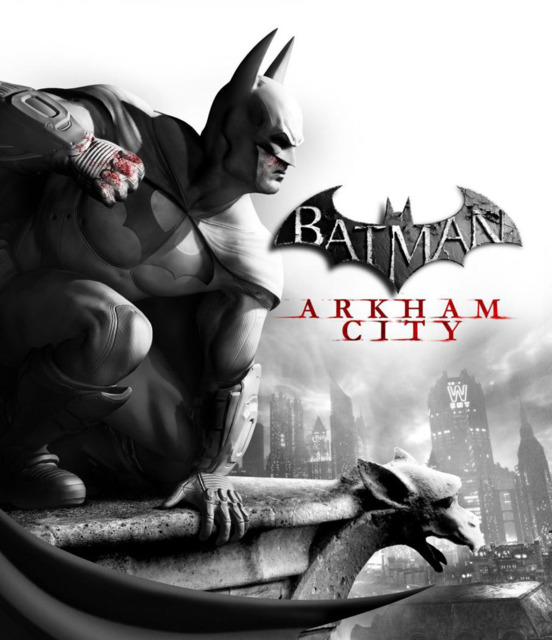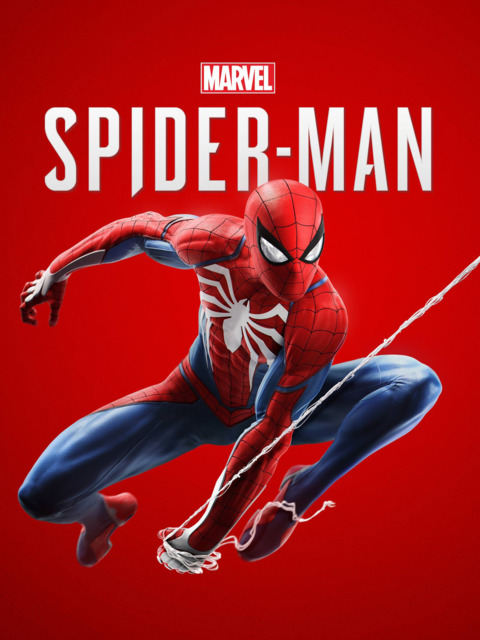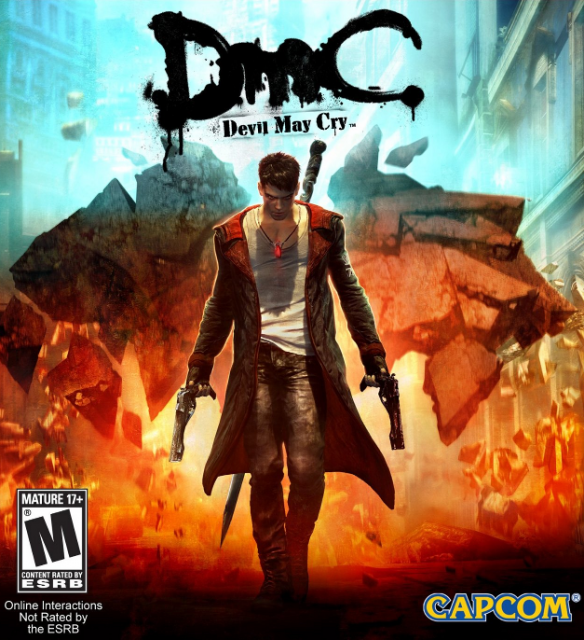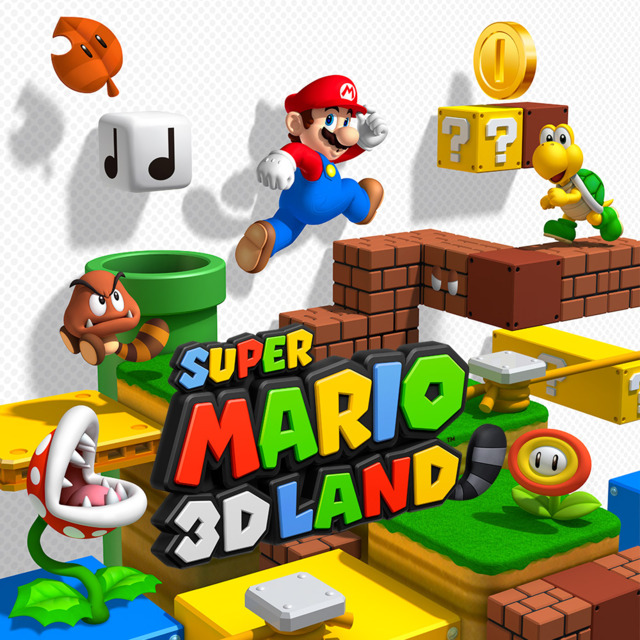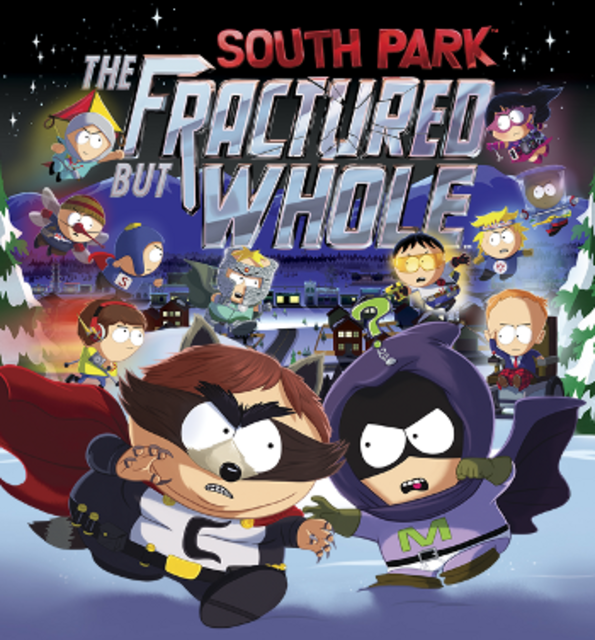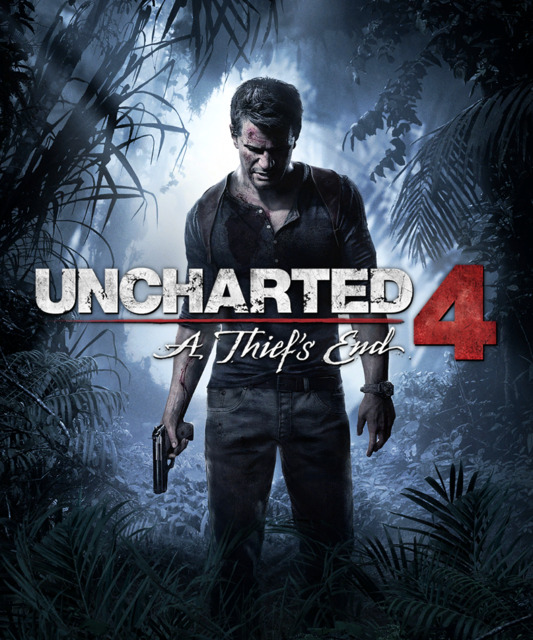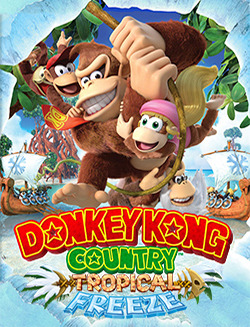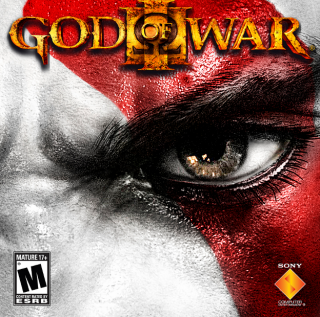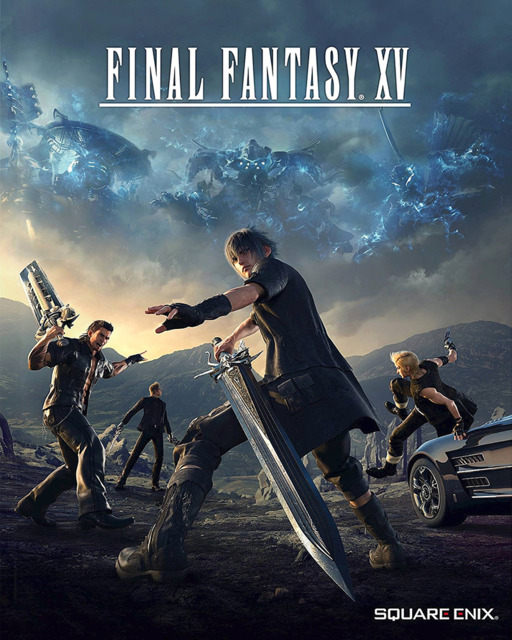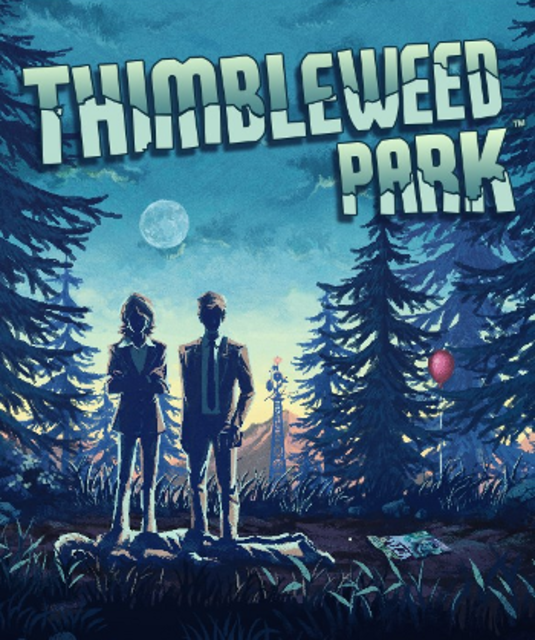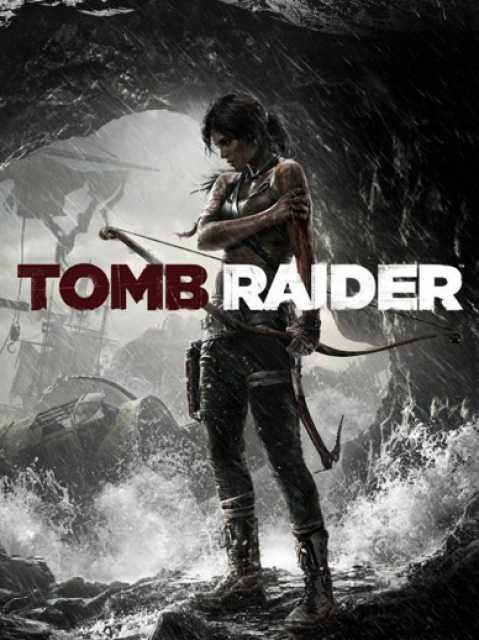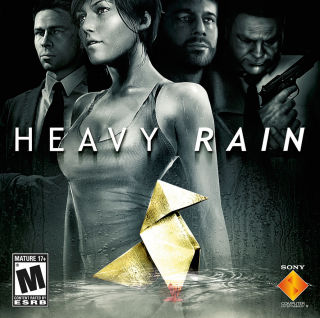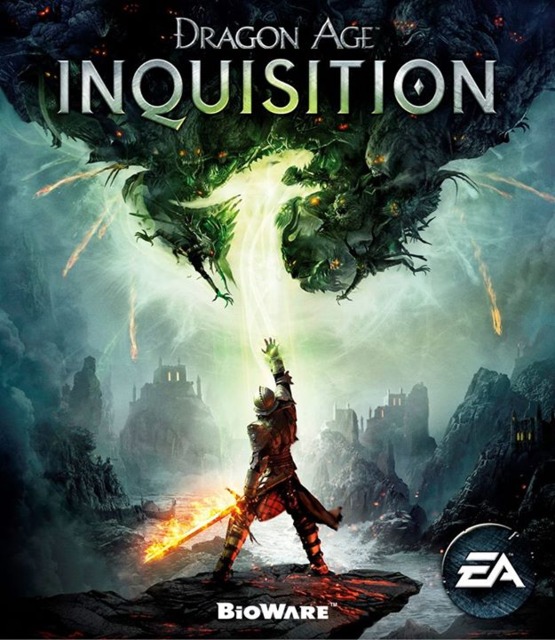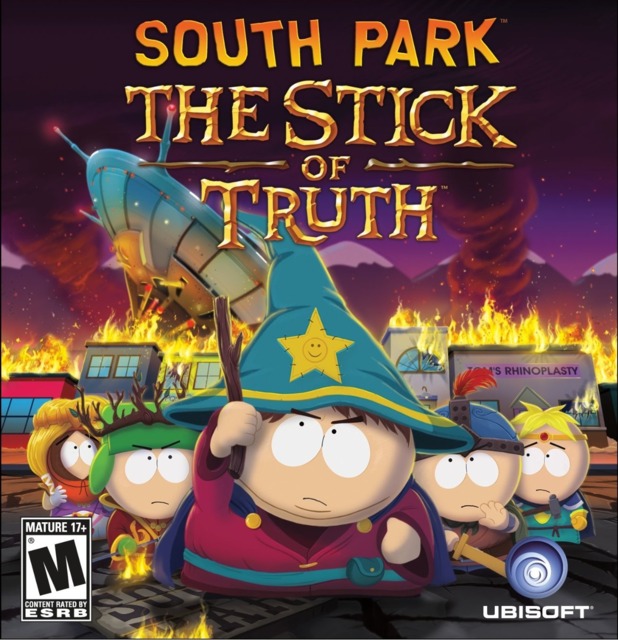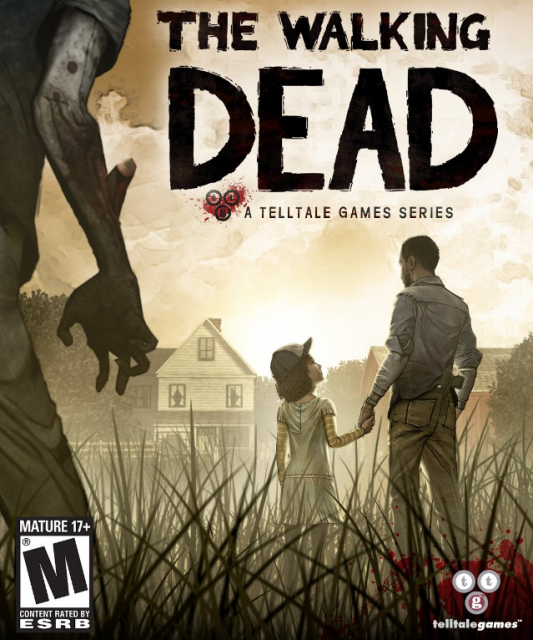List items
-
Red Dead Redemption ended in such a manner and such a chronological setting, and the emergence of such a replacement for the lead character, that a sequel never felt close to likely. But, when rumours of a Red Dead Redemption II started circulating on the Internet, I figured something out: the game left us with all the potential for a bombastic prequel. John Marston's hunt for his former comrades was never the first game's focus from a gamer's point of view – and while the guys he was chasing were such great characters built up through ways of dialogue, we never really got to know them. Just scraps of their personal reputations.
Well, Red Dead Redemption II fixes that, we get to spend a whole game with 'em. Introducing Dutch van der Linde's right-hand man Arthur Morgan (MAYBE slightly referenced in the original) as the new lead, the game takes us back by 12 years before the beginning of the original game, chronicling the van der Linde gang's exploits as they hide from the law and attempt to get back on their feet after a severely botched, high-profile robbery and looking for that ”one last job” that would allow the whole lot to start whole new lives somewhere far from home.
Arthur is more of a blank slate than John ever was; his past is more ambiguous, and player decisions play a bigger part in the character he becomes on this journey. In other words, the Honor system means that much more, even certain missions are directly tied to Arthur's treatment towards NPC's. Forgetting about the missions... well, in fact, forgetting about the missions makes the game as great as it is. The first few hours of the game are spent teaching the player core skills within a very linear margin – so linear that people have been known to abandon the game after the first hour – and allowing access to some basic weaponry, but the linearity of the game fades gradually, and after about 8-9 hours of gameplay, you are free to explore the living and constantly developing game world at your very own leisure, with the exception of the neighboring state which (for good reasons) doesn't unlock until you've finished the main storyline.
How to pass the time in this game, you ask, if not doing stuff that actually matters? Now that's a long, yet beautiful story. Hunting, first introduced in the original game and then improved in GTA V, is my personal favourite ”hobby”; I won't even begin to explain its level of detail here. Fishing is introduced as a whole new ”minigame” - kind of influenced by the fishing in Final Fantasy XV, just much better. Texas Hold 'Em is back, of course – no Liar's Dice this time, though. Generally there are a lot of things you can do to help out your gang or boost their morale, which will probably take you a lot of time to figure out and explore during the first half, if you're interested in them besides yourself, and TONS upon TONS of deliciously frustrating collectables in the genuine Rockstar style, as well as a truckload of challenges and challenge categories.
To reach the fabled 100% mark, you'll have to have no less than hundreds of hours to spare. Plus, John Marston is of course back from the dead and very much back in the fray, as a younger and admittedly stupider, but altogether improved and even deeper version of himself. There you have it, just some of the thousands of reasons you need to go and buy Red Dead Redemption II, as soon as possible. Explaining the whole deal would take me at least a week. Frankly, Red Dead Redemption II – or should we say, Ultimate Wild West Simulator 2018 – is my personal favourite video game in all history, sidelining Final Fantasy VII after 21 straight years.
-
I think it's safe to say this decade's been owned by two superpowers – Nintendo, who made the comeback of all time with the Nintendo Switch, and not so surprisingly, Rockstar Games, who – save for just one or two exceptions outside of their ”main zones” - have gotten better with every damn game since their official arrival to the scene all the way back in 2001.
Grand Theft Auto V was not a joyful task when looking at it from a game developer's very initial point of view; the last major Grand Theft Auto title was critically praised, but as time went by, it was quite clear that the game's main attractions were its next-generation audiovisuals and game mechanics. The game itself was somewhat repetitive and ”empty”, relatively speaking when it comes to the games that made this series – a great game, no doubt about it, but a disappointment for sure. Then, in 2010, came Red Dead Redemption, a game based on the same engine but taking us back in history all the way to the final days of the Old West, primarily made by Rockstar San Diego instead of Rockstar North, which not only turned out a severely superior game against all odds, but created whole new standards of narrative and gameplay that Rockstar – and all of its different branches – were forced to live up to. Ever since the announcement of Grand Theft Auto V, there were many Rockstar followers – including myself, to some very slight degree – who doubted the possibility that GTA V would feel fresh enough or have characters or storyline even close to the beauty of Red Dead Redemption.
Well, they sure as hell wiped the table with us; Grand Theft Auto V is the day to Grand Theft Auto IV's night. Narratively, it's of the exact same caliber as Red Dead Redemption, and gameplay-wise, easily the most enjoyable and freedom-filled game in the modern open-world genre. Told from the perspective of three totally different characters, all of whom have been designed according to different preferences among GTA players, GTA V hardly ever runs out of things to do. Even while the actual number of story missions is notably smaller than in, say, San Andreas, take note that some of these missions last for HOURS, and switching characters within mission confinements could well grant a different gaming experience each time. Not to mention mission challenges, way more diverse than they were ever before, or challenging yourself by making different plans and decisions of how a certain robbery should be handled, before you go on the actual job. (Which reminds me, the thrill of a successful robbery or heist is dangerously satisfying.)
One thing I'd also like to pass particular praise to, is the audio. In previous games, the audio was limited to dialogue, gunfire and whatever was playing on the radio – there's always ambient music here, perfected for each situation. I think it's really, really cool, and makes the game feel all the more like the perfect heist ”cinema” it represents. Grand Theft Auto V is simply up there with Final Fantasy VII as one of the greatest games ever made – and, the best part is, it isn't even the best game of the decade. Or the best Rockstar game.
-
Some people have seriously asked me: so, you have a Breath of the Wild carry case for the Switch, you're a big fan of the game obviously, so why don't you own it? Why wait 'til a year into the release of Super Mario Odyssey to buy a Switch? Why don't you still own Breath of the Wild? The answer: I do, I DO own Breath of the Wild. On the Wii U. ”They released Breath of the Wild on the Wii U? Ugh man, that version must suck!” Yes, as a matter of fact back when I bought the Wii U, Switch didn't even have a proper name yet, nor was it confirmed that it would even be released on the Switch. The Switch launch game you all so love is actually just a port of the Wii U game. No, it certainly does not suck. As a matter of fact, there are no fundamental differences between the two games. Not even when it comes to loading times – the only technical difference is that you can play the ”superior” port anywhere. That is what makes the Switch game so good in comparison to the Wii U's 8 meter (or so) limit, and the Wii U Gamepad's piece of s**t battery life.
On to the more important question: why buy a dying system, moreover considering my personal history: one made by Nintendo, for a major game in a series I'm known to consider overrated? Before I knew anything concrete about Breath of the Wild, I had a feeling this game was going to be an experience that I had always wanted The Legend of Zelda to be. And that, it most certainly is: a completely open-world game that focuses more on the exploration of this beautiful landscape than ultra-difficult puzzles and maze-like design, and a game that feeds on sidequests and random tasks instead of having a story to constantly hold you back from realizing your inner adventurer. The story is remarkably good, there's no doubt about it – especially since it's whole new, and ditches that age-old alternate timeline schtick that's been around since 1998's Ocarina of Time, EVEN the romantic relationship between the two main characters which is probably the most shocking development – but the game pretty much WANTS you to forget about it, consistently making your progress in the main chapters long and wading, as if to say: you still have a chance to turn back, and do something else. Even when you reach one of the main dungeons, you are given the choice of warping back to the world or grit your teeth and be done with it. Here's one more carrot for you: you don't have to complete ANY of the dungeons in the game. Hell, you can pretty much head straight into the final boss fight if you want – you'll probably get your ass handed to you, but the opportunity is there.
Me? You know me... I want to do everything. And I thought I had done everything; I had cleared all of the game's 120 Shrines – puzzle-ridden minidungeons, if you will – unlocked every tower and flashback, acquired just about every piece of equipment, including the Master Sword of course, prepared about a 1,000 different meals and elixirs, bought and furnished my own house, completed every chapter of the main story, every sidequest... and still, after 175 hours of gameplay, my total completion percentage was 34%. This counts for DLC's which I wasn't interested in at all at the time at least, but also, you need to collect information into the game's inner compendium by taking photos of all enemies, certain characters and equipment, plus visit every location in the game to have a chance at getting to the fabled 100%.
I still have a ways to go with this game. But I'll enjoy the trip once I have the time. The Legend of Zelda: Breath of the Wild is, without a doubt, The Legend of Zelda at its very best, and the upcoming sequel isn't coming fast enough.
-
Although my relationship with the Switch has since deepened by several levels, there was one single game behind my then very strange and reckless decision to buy a Switch – I had just broken up with my partner and moved to a new apartment with very little to my name. That, was Super Mario Odyssey. I was temporarily living with my best friend and his family before I was officially given the green light to move my stuff into my new place, and of course I had to go and try this game on their Switch – even though I couldn't really afford a new console, this game blew my mind, so I marched into the nearest supermarket and checked out with my own Switch.
As a lifelong Mario fan, it's still very hard for me to say out loud, but it isn't any less true: Super Mario Odyssey is the greatest Mario game of all time. Considering the company it is in – chronologically we're speaking Super Mario Bros. 3, Super Mario World, Super Mario 64, Super Mario Galaxy, Super Mario 3D World – hell if there's one game ever this close to a perfect 10 in its very own category. We're not talking about a 3D Mario game that takes the best of the 3D Mario games and throws them in a blender, it takes EVERY Mario game ever made on the side, adding in completely new and fresh level design modelled after real-world cultures, but still feels like 100% Mario. When it comes to the main gimmick of the year, Mario is on the hunt for 999 (!!!) Power Moons / Stars scattered across 15 kingdoms to power up his new ship, the Odyssey, all with their particular theme – including a sprawling metropolitan area that is a living tribute to Mario's origins and his original arch enemy, Donkey Kong.
Mario's hat is imbued with magical powers that allows him to ”possess” certain enemies and objects to reach spaces that are out of his usual reach, or just for the hell of it.
Super Mario Odyssey offers challenging, nearly endless entertainment for a true Mario fan. By far, the only thing wrong about this game is that even though Switch's calling card is its handheld feature, Super Mario Odyssey doesn't really support it. It's a fun handheld game, but at its absolute best from a TV screen, with separated JoyCons – which also allow you to play a generic, but somewhat entertaining co-op game.
-
Let's say we have a 100 people in a room. First question: how many of you were disappointed in Fallout 4? 99 hands. Second question: how many of you were disappointed in Fallout 4 because the audiovisuals of the game didn't meet your expectations in the year 2015? 98 hands are still up, I'll bet, and that one person didn't like the game 'cause he grew up playing the first two games.
That's the most usual gist of Bethesda's Fallout titles, isn't it? Good games, but ”not Fallout”. Well, I'm more into an entertaining game than frames-per-second or audiovisual prowess in general, and since I was never much of a PC gamer, my experience with the first two games came years after I had fallen in love with Bethesda's first outing in this category, Fallout 3. I think Fallout 4 has the best story out of any Fallout game – any Bethesda game at that – and like all Bethesda games, the story is still far from the best part. They're all about exploration, and I think Boston makes for an amazing virtual playground. The removal of an actual level cap and a traditional, but still heavily evolved skill tree make exploration and character development all the more interesting.
There's also a construction tool for any wannabe city-builders out there, which allows you to build and maintain your own settlements using any salvageable junk you find – it's kind of force fed, actually, but not to the point of frustration unless you're going for all the Trophies or Achievements.
The excellent add-ons bring in stuff like allowing you to build your very own cyborg companion with customized weaponry, and several hours of challenging gameplay that's tied to the main plot and doesn't feel as detached from the game as has usually been the case. I personally think Bethesda, despite making some poor economical choices in recent years, are getting better with each game – certain unlucky MMO's of this particular brand excluded – and I certainly don't understand people's constant need to shoot them down.
-
People love to make fun of this game – but not out of hate. Out of love. The Elder Scrolls V: Skyrim – or just Skyrim – is a game that is incredibly hard not to like. I should know, 'cause I was never a fan of this series before. I don't think my love for recent Fallout games had anything to do with my falling in love with Skyrim. It's just such a major Elder Scrolls overhaul; I never really got what was so great about the previous games, and I'm not that much of a fantasy buff. Fallout's satirical post-apocalyptic science fiction narrative is closer to my heart.
Being just about the ultimate fantasy story ever – a nameless ex-convict waiting for his execution discovers he is the only person alive capable of fighting a world-threatening dragon and surviving to tell the story – there's so much more to Skyrim.
You can travel the huge open world, with the difficulty level scaled according to your experience level, distancing yourself from the story, and as the main storyline pretty much has you explore big cities only, it's easy to even forget what it's all about. Provided you have all the DLC, you can use your hours to excavate ancient dungeons for ancient treasures, become a vampire hunter, stealth assassin, thief, master blacksmith, traveling merchant, master wizard, WEREWOLF, just to a mention a few, even get married to just about anyone you wish, start a family and build your very own freakin' house. Skyrim is full of opportunities – and to be frank, that story ain't too bad either. Just a minute, I need to re-install the game.
-
Mass Effect 2 is one of those games that got unanimous praise when it first came out, but as years have went by, the Internet has found new flaws in it on a daily basis, and suddenly there's one side that calls it a science-fiction masterpiece and one side that calls it overrated bullcrap.
First of all, I'm obviously on the first side, and secondly, I think it's just people's NEED to erase every good thing BioWare and Electronic Arts ever accomplished together. Mass Effect 2 was – no, IS – a revolutionary title. Although the gameplay radically differs from the first game, opting for a tactical third-person shooter (and improving on all the essentials, by the way) it remains very attached to its RPG roots, unlike the even unluckier final chapter in the trilogy. Mass Effect 2 was the first game to incorporate a very elaborate character importing system; having a completed file of Mass Effect on your system allowed you to not only import your previously created character to Mass Effect 2, but each and every plot twist and decision (including those made within the confines of DLC), and character alignment from your personal game. Basically this means that you could play these games back to back, and never notice a difference beyond a suddenly improved gameplay scheme and huge graphical overhaul – it picks up so naturally from where Mass Effect left off, and continues on the same track, collecting those tidbits in favour of Mass Effect 3, potentially adding whole HOURS of gameplay.
It's still pretty damn impressive. After four and a half playthroughs (one on a half on Insanity), Mass Effect 2 still manages to keep me well beyond entertained. It is indeed a science-fiction masterpiece, and easily BioWare's finest work.
NOTE: If there's just one DLC you want for a game (ANY GAME), it's Lair of the Shadow Broker. In general, I think it's the best piece of downloadable content ever released for any game.
-
Kratos is back – but as a very different individual, in a very different geographical setting, in a very different game. And, as expected, he rocks the joint.
Following in the footsteps of The Last of Us – another PlayStation exclusive – set in pre-Ragnarök Norway, or Midgård if you prefer, God of War basically revolves around Kratos bonding with his young son Atreus after the death of his second wife, and their journey to a holy mountain to scatter her ashes to the Norse winds. Since this is God of War, there's something else to it, in this case a band of local gods who don't approve of the duo and are hunting them throughout the nine realms. (They clearly don't know Kratos too well.) Although the story – believe it or not – is direct continuation to the ending of God of War III, there aren't that many references to Kratos' past exploits in Greece, and the game is very different.
It's a semi-open-world action-RPG instead of a straightforward hack and slash, played from a completely different angle, with the camera focused on Kratos from the start to the very end, with absolutely no loading or other pauses in the between. Even the cinematics are in direct conjunction with the gameplay.
It's a clear departure from the God of War of old, that's why I'm still unwilling to rank it any better or worse than God of War II – my favourite in the old series – but make no mistake, it's a simply amazing action-adventure / RPG / God of War hybrid, and it has been proven that you'll probably enjoy it even if you haven't played one God of War game before, or have been pushed off by the old series' ultra-violence, which is notably toned down here. Or at least justified.
-
Uncharted 2 directors Neil Druckmann and Bruce Straley skipped Uncharted 3 – and it showed – to have a slice of the post-apocalyptic survival horror pie, and the result was absolutely phenomenal.
20 years after a fungal brain disease (common among insects in real life) spread across the United States and beyond, turning well over a half of the world's population into primitive, raging freaks, a middle-aged, heavily embittered and brutal smuggler named Joel is tasked with escorting a 14-year old girl named Ellie to the care of a private army for initially unknown reasons.
Although a survival horror game by first glance, The Last of Us is most importantly about the ever-deepening companionship and chemistry between these two extremely different individuals; while Joel is teaching Ellie survival skills and giving her a gruesome ”tour” of the reality of the outside world, Ellie is there to show the stubborn old man he still has someone to care for, and something to fight for. It's just like The Walking Dead – only much better.
Each and every move and gesture was mo-capped in a studio, recorded at the same time as the voiceovers – the voice cast, led by Troy Baker and Ashley Johnson (who some of you might remember as Mel Gibson's daughter in What Women Want or for her brief cameo in Marvel's Avengers), is top of the bill. Before heading into The Last of Us Part II, coming in February 2020, don't forget to play this one first. Or return to it one more time. It's a God damn masterpiece.
-
Without a doubt, this game's greatest flaw is that it was released on the wrong system... and for some God damn reason, it has not seen daylight on Switch, or moreover, spawned another sequel. By all possible accounts, Super Mario 3D World is BETTER than either one of the Super Mario Galaxy games, not to mention lightyears ahead of the New Super Mario Bros. series.
At first, bringing Super Mario 3D Land from the 3DS to the big league didn't seem that awesome, but after just the first few levels, Super Mario 3D World shows just what it can do by improving on EVERYTHING, including the 3D effects that made the original game so good, the minigames, and the level design, just to mention a few core elements, even taking advantage of the Wii U Gamepad's microphone from time to time (which is something still not worked out on the Switch!). Super Mario 3D World is, without a doubt, one of the best Mario games ever made, and I would still buy a Wii U for this game alone.
-
My history with this game is extremely colourful. To keep it short, 2004's Grand Theft Auto: San Andreas made me a huge Grand Theft Auto fan. 2008's Grand Theft Auto IV made me an even bigger fan (at the time). One of my best friends, though, went the opposite way. He was disappointed in San Andreas – even moreso in Grand Theft Auto IV. He told me about an upcoming game called Red Dead Redemption, which was basically to be a Wild West version of GTA, and he was absolutely ecstatic about it.
At that time, I had tried Rockstar's cult shooter Red Dead Revolver, and I had not liked it much; I also thought that adapting the Grand Theft Auto engine to a Wild West setting would never work. I bought the game one drunken night, and realized I was dead wrong. Red Dead Redemption was several levels ahead of Grand Theft Auto IV in terms of gameplay and storytelling. It also took some notes from the GTA IV DLC, improving on them to the best of the basic setting's limits.
By the way. John Marston was – and is – my favourite protagonist in video game history.
-
I was never a huge fan of Super Smash Bros.. Of course I wasn't, because I distanced myself from Nintendo for so long... it was somewhat of a guilty pleasure. I got acquainted with the franchise somewhere around 2008, I guess; back in the time Brawl was new. I never played it though (at that time), I played the original on the Nintendo 64. I got RE-acquainted with the series when I bought the Nintendo 3DS, moreover a Super Smash Bros. edition of the handheld. I liked it quite a lot, but not much more than I liked the very original on the Nintendo 64.
Super Smash Bros. Ultimate though, blew my mind. After a LONG period of contemplation, I have reached the conclusion that Super Smash Bros. Ultimate is my favourite fighting game of all time, surpassing Mortal Kombat 11, Tekken 3 and Super Street Fighter II. It's just amazing how much a fighting game can offer in itself, but when it has a ”story mode” and a deep, challenging collector's base... and of course, a roster of who's who in video game history.
-
Koji Igarashi's back with a Kickstarter game that is closer to Castlevania than Castlevania has been since 1997's Symphony of the Night. Don't get me wrong, though – I think Aria of Sorrow and Dawn of Sorrow, even Lords of Shadow, are some of the best games in the Castlevania series.
It just so happens that even though Ritual of the Night was conceived as a spiritual sequel to Symphony of the Night, it takes the best out of the Sorrow saga (and borrows from the rest of the Castlevania games Iga produced), creating the ultimate ”f**k you” gesture against Konami, in Hideo Kojima's footsteps.
Bloodstained: Ritual of the Night is not one to boast a great storyline, but it pays back in full (and then some) with simply incredible Metroidvania gameplay seriously not seen or experienced in over ten years. The price tag for the digital release is admittedly quite steep, but I seriously recommend you get over it. Or be a better man than I, and buy the physical edition from any well-equipped retailer.
-
This was the first game I got for my PlayStation 4 back in 2014. I was never a Rayman fan. I had no interest towards the game. It was CHEAP; that's why I got it. After getting Injustice: Gods Among Us (the ”Ultimate Edition”) and completing the story mode in that game, I thought I'd give Rayman Legends a try – and fell in absolute love with the game.
Come on... no game that has a level based on a mariachi version of ”Eye of the Tiger” can be all that bad. In all seriousness, Rayman Legends is one of the best and most addictive platformers ever conceived. It's moderately easy to beat, extremely difficult to master, and it always – ALWAYS – pushes you to do better. Just like some certain games released over 20 years before. A modern-day masterpiece of a 2D platformer.
-
Shower me with hate – I feed on it – but yes indeed, Batman: Arkham Knight is the best game in the Arkham series, the best licensed superhero game ever made, and one of the best open-world action-adventure games to boot.
People's biggest beef with this game – aside from a disastrous launch version on the PC – is the Batmobile. Something they always dreamed of turned into their nightmare – granted, the Batmobile plays a huge role in the game, but in its core, it's still Arkham. It's still got its best qualities intact, it's got a huge open world in the wholly redesigned – not to mention WHOLE – Gotham City, great rogues gallery (including one particular death-defying favourite), absolutely amazing storyline which should please all true fans, it's very dark like my personal favourite comic books in the franchise... it's simply a perfect Batman game in my books.
Check out the DLC as well. Especially Season of Infamy.
-
When I first heard that one of my favourite game franchises was going first-person in the mainline series, I thought to myself: ”No.” How could you go any worse after Resident Evil 6? By making it first-person. I pre-ordered the game anyway. Of course I did. I expected it to suck some serious eggs. I expected to get another Resident Evil title to grace my shelf, and gather dust on it. What I did not expect after collecting that pre-ordered game and trying it for the first time, was love it to a thousand pieces.
Resident Evil VII took the storyline to a whole new direction, and at the same time, managed to deliver a truly morbid, scary gameplay experience not seen in the series since the spookiest parts of Code: Veronica – nor the whole survival horror genre.
Resident Evil VII was a new beginning for the whole genre – and we've yet to seen how it goes. (The later remake of Resident Evil 2 is currently my favourite game in the whole genre, but exempt from this list as it is a remake, and not the still just rumoured sequel to Resident Evil VII.)
-
If Shovel Knight had been made in the late 80's, it would probably be revered as the greatest and most influential video game ever conceived.
Taking EXTREMELY notable cues from classic 2D side-scrollers such as old-school Castlevania, Mega Man, DuckTales and Zelda II: The Adventure of Link, Shovel Knight is quite seriously the greatest indie game ever made, by far; it's just God damn perfect for any retro 2D side-scroller buff, complete with a generic, silly plot that no one actually cares about; challenging, fluid and rewarding gameplay; slight RPG elements; absolutely incredible music, mostly orchestrated by 8-bit buff Jake Kaufman.
A simply perfect game in its own right – Shovel Knight.
-
2007's BioShock restored my faith in first-person shooters – albeit several years after its release. The story hit me in all the right spots, and the gameplay was phenomenal – at no point did I stop and think I was playing an FPS. Playing that game for two hours prompted me to go to the nearest GameStop and buy the other two BioShock games. 2010's BioShock 2 was quite all right, but didn't live up to the first one – as you damn well know. It was designed by whole different people. The original team was working on the third game at the time. BioShock Infinite, it was called, and it blew my head off. Almost literally.
Although it has basically nothing to do with the first two games – at its non-DLC core – it's so damn familiar and fresh at the same time, taking us all the way back to the beginning of the 1900's, to the highest skies, as opposed to the first two games' 1960's underwater setting. Even while the game is basically a full-length escort mission, it manages to be an effortlessly enjoyable, story-driven masterpiece, with once again many thanks going to the almighty chemistry between Troy Baker (not the first, nor the last mention of this guy) as private investigator Booker DeWitt and Courtnee Draper as Elizabeth, the mysterious subject of his recent case.
-
By 2017 – or actually, much earlier – Assassin's Creed had become the laughing stock of the video game industry. Ironically, much less promoted games, such as 2015's Assassin's Creed: Syndicate, made it much better in the public view than its 2014 predecessor Assassin's Creed: Unity, the first true next-generation Assassin's Creed game, which was riddled with glitches and was a very uninteresting game in general. The series had altogether grown very stale with its annual releases and promotion for things that were not real. Then, came Assassin's Creed: Origins – a game that frankly looked extremely stale by first look, and didn't promise much by its setting in Ancient Egypt, or its ”boring” main character either.
However, Assassin's Creed: Origins went on to turn the whole series and its recent history upside down; not only was Bayek the most interesting historical protagonist in the series since Ezio Auditore, Egypt provided for a playground no AC game had done up 'til that point, and the game was no longer a straightforward sneak 'n' stabstabstabmotherf***er game, but a role-playing game which actually made you think about all different options and whether you should improve yourself by all accounts before taking on a certain individual... or a whole gang. I know there are many who consider the follow-up Assassin's Creed: Odyssey an even better game, but I think that game steers off the basic formula a bit TOO much. In this game's case, the origins (no pun intended) are very clear.
-
2011's Mortal Kombat was an amazing return to form by this one-on-one fighting classic. 2015's Mortal Kombat X was so much better in terms of gameplay, but even its designers have addressed the inclusion of many whole new characters they didn't even like to start with – they just wanted to inject some new blood into the franchise. With 2019's Mortal Kombat 11 – considered the final chapter of the trilogy that started with the 2011 reboot – they took the middle road.
It's a project of love, featuring the new characters people actually liked in the previous game, and a whole array of classic characters from the first two games, on the basic roster untouched by downloadable content. The controls, never Mortal Kombat's forté in the far past, were upgraded by a 100%, the Fatalities and other deathly antics grew better and more punishing by the day, and the game remains simply just as (or more) addictive as any fighting game back in the day of the genre's wake.
-
Super Mario Galaxy 2 was originally devised as a ”Game of the Year” edition of the first Super Mario Galaxy game, with loads of extra content, but as development on the game continued, it was Mario creator Shigeru Miyamoto himself who pulled the plug on the project and told them to make a whole new game instead, based on his impression of the new fabulous level designs.
The result: a reboot of the Super Mario Galaxy plot, with tons of much more interesting galaxies and tasks to explore, altogether better gameplay, and last but definitely not least, a long-anticipated 3D incarnation of Yoshi, who worked like a dream within the Wii control scheme. Pretty much the only thing wrong with the game was that its basic concept wasn't fresh enough to please some audiences.
-
Crystal Dynamics' reboot of Tomb Raider was just fantastic – however, Rise of the Tomb Raider, originally released exclusively on the Xbox One but a year later on the PlayStation 4 as an enhanced version, turned the knob so much further.
The same basic concept meets a more open, daring and complex level design, with a much more interesting and ever-changing world to explore – even a better storyline that fans of both ends of the Tomb Raider spectrum should be happy with. I dare say Rise of the Tomb Raider is the closest to a masterpiece this series has ever been.
-
2008's indie platformer turned into one of Sony's flagship exclusives was a game no one thought would ever end, due to its extremely elaborate level editor. Developers Media Molecule believed they could make something much more out of this concept – a platformer living on forever by its user-generated content – and so they made LittleBigPlanet 2, which was no longer marketed as a platform game, but a ”platform for games”, adding an editing tool that allowed players to make any types of generic levels they wanted: RPG's, shoot 'em ups, racing games, etc. (Even recreate levels from classic games, such as Mega Man. -personal note.)
And, to those who were not interested in creating, just playing, LittleBigPlanet 2 offered an incredible, deep and challenging 2.5D platformer none could match; here's looking at Sumo Digital's LittleBigPlanet 3, which to me was one of the biggest disappointments of the decade.
-
As many who are reading this know: after the release of the first PlayStation, I pretty much abandoned Nintendo for nearly two decades to come. I particularly always had a disdain for the success of the Legend of Zelda series, BUT my love for The Legend of Zelda: A Link to the Past for the SNES never went anywhere.
When I finally got around to buying a Nintendo 3DS, the direct sequel to the 1991 masterpiece was the first game on my list... and it blew my f***ing mind. Indeed, A Link Between Worlds is not a remake, but a sequel, set in the exact same world as the SNES original, but with a whole new main gameplay gimmick, multiple twists (and story years in between) to make it feel like a whole new game.
This game inspired me to give the whole series another chance, and since that I've collected each mainline game and loved each one that I've had time to play; even the first ones I hated as a kid. (I still consider both Nintendo 64 games and Wii's Skyward Sword overrated, though.) A Link Between Worlds is most definitely among my absolute Legend of Zelda favourites, and my favourite 3DS game altogether.
-
Let's go over a couple of issues right from the start. Why isn't Ni no Kuni II, considered vastly superior to the original PlayStation 3 hit, on this list? Well, as good as the game is, I think ”vastly superior” is bit of an exaggeration. They attempted to do too many things at the same time; I like it, but haven't had the time or the interest to come close to reaching the halfway mark of the game.
Then: why am I, a lifelong naysayer to anime and overtly Japanese presentation, not to mention the Pokémon trend from the beginning, so interested in a game that not only was graphically designed by Studio Ghibli – the most critically acclaimed anime studio around – and is basically about raising a group of little minions to become battle-ready monsters? YOU TELL ME THAT!
Well, in all seriousness, all things that I find great about this game severely overshadow its superficial shortcomings. It has a surprisingly good and comprehensible story, AMAZING graphics and music – perhaps I'm not a fan of anime, but damn, how can they make an active game look like an anime film? - and some very welcome traditional J-RPG gameplay that hadn't been around for a long time. Besides, I was never against the Pokémon concept, actually I think it was always quite neat – but it's the cartoon and the commercial overflow of the franchise that I truly hate. Ni no Kuni: Wrath of the White Witch was, by just about every account, way ahead of J-RPG's of its time – including, or should I say especially, Final Fantasy.
Ni no Kuni: Wrath of the White Witch practically rebooted my passion for J-RPG after my favourite series of all time had (temporarily) gone to absolute s**t.
-
Here's the thing: at its core, Batman: Arkham City is one of the few masterpieces of the Batman franchise, outside the frame of the comics. But, its open-world gameplay, exceptionally amazing rogues gallery, and its shock ending cannot hide the fact that while the storyline's thrilling, it's full of splinters. The fact that it's an open-world game actually hurts the storyline – which is probably why a lot of people prefer the more compact setting of the first game in the Arkham series (exempt from the list due to having been released in 2009).
For example – spoiler – Batman is revealed to have a disease that is rapidly killing him, but instead of going straight for the cure, he still has time to go on a treasure hunt around the sprawling prison known as Arkham City, and his degrading condition is all but forgotten whenever he enters a certain zone.
Also, while the ending is quite damn good, it doesn't translate all too well to the gamer who was expecting a serious boss fight. But, I digress; throughout its length, Arkham City is a damn good game, a must-have for any lifelong Batman fan such as me. And, I strongly suggest you get the Catwoman DLC for the game, as it's not just any ordinary DLC, but a whole episodic minigame integrated straight into certain turns of the main storyline.
-
At this very moment, the Marvel Cinematic Universe – which opened with Iron Man in 2008 – is, without a doubt, the most popular ongoing film series in the world. It's only logical that at some point of this success story, someone gets the idea of making the ultimate Marvel video game. The world wasn't ready for an AAA title starring the Avengers just yet, so Sony – who own a hefty percent of the character's assets – and Insomniac Games, best known for starting the Spyro the Dragon franchise, and long-time development of Ratchet & Clank, worked out ”the ultimate” game based on Marvel Comics' most popular character. They picked up the best bits and pieces from the most acclaimed Spider-Man games of the past, obviously read a s**tload of comics, took some pointers from the MCU to boot, wrote a lot of familiar but still very radical plot twists, both light and dark, by themselves, and did exactly what they set out to do: the ultimate Spider-Man game.
The game is an absolute thrill for Marvel fans – duh – filled with simply delicious easter eggs, but enjoyable even for those who are not that into the character or comics, just open-world action-adventure in general. It's basically Spider-Man: Arkham City, really. The story's just more cohesive than in Batman's adventure, I think.
-
It's not the only game on this list that everyone else but me seems to hate, but probably at the top of the heap. Just to add some more fuel into that fire of hate, let me be frank about my opinion: Ninja Theory's take on the Devil May Cry franchise is, and no, I don't feel ashamed to say it, the best game in the Devil May Cry franchise by far.
Let's take the most recent example of the original series, which was Devil May Cry 4 from 2008. Yeah, it was OK, but still suffered from the same things the series had always suffered from: an over-the-top, ridiculous storyline, horrible music, and promising, yet clunky gameplay – especially in a time God of War had been established as the new king of hack and slash. The silver-haired, sleek and slick Dante was somewhat of a J-rock star, especially given his demonic guitar in Devil May Cry 3.
Ninja Theory reimagined Dante as a raven-haired, scruffy and foul-mouthed loner, who just wanted to be left alone instead of constantly begging for attention, and the story – of Devil May Cry 1 and 3 – as an urban tale with just about every political megapower in the world linked to the world of demons, and joining up to hunt down the son of Sparda. Which, all in all, is much more to my personal preference than an overtly Japanese, over-the-top romp.
On top of that, the gameplay is extremely fluid, and all of the parts which I consider important to the Devil May Cry traditions are very much in place.
-
Super Mario Land was released in 1989 on the Game Boy, and served as Mario's debut on the classic handheld. It was mainly named such to set it apart from the Super Mario Bros. series, as well as the then-upcoming 16-bit mammoth Super Mario World. As somewhat of a tribute to the cult platformer, Super Mario 3D Land was released on the Nintendo 3DS 22 years later, to mark Mario's debut on this particular handheld console.
However, Super Mario 3D Land had nothing more to do with the somewhat surreal, even awkward Super Mario Land series – it was a full-fledged Mario platformer, and then some, named such due to it being a 3D platformer, which played out just as nice and easy for a Mario veteran as any 2D game, and proved that the Nintendo 3DS could potentially live a long life – as it has.
This game and its potential to spawn a major home conversion pretty much destroyed the chances of the good, but stale New Super Mario Bros. series. Amazing level design, amazing 3D effects and amazing gameplay make this game a very early 3DS milestone which no-one can afford to pass. The Wii U sequel turned out even better.
-
The odds were stacked against this game. First of all, well over a half of the easter eggs, new characters and plot details in South Park: The Fractured But Whole originate from my least favourite seasons of the show – actually just about all of the last five or so. The game is a tactical RPG in contrast to the first game's old-school, turn-based RPG gameplay – I've never been a fan of those. BUT! Once again Trey Parker and Matt Stone managed to deliver a funny-as-f**k game that's not just a good licensed game, but better than the show it's based on (considering South Park's recent and current state)!
Through a series of deliciously surreal plot twists, the high-fantasy role-playing of the neighborhood's children turns into an epic superhero saga with plenty of awesome jabs at the recent outbreak of superhero films; the Marvel Cinematic Universe and DC Extended Universe absolutely get theirs, and then some.
You once again play as the ”New Kid”, who might've been hot s**t as a fantasy cosplayer, but not considered superhero material before proving themselves. Just like its predecessor, the game is like a 20-hour non-stop laughfest of the South Park signature, only – as ironic as it is – even funnier, even more surreal, and the tactical RPG gameplay is actually quite damn amazing, even better on the harder difficulty levels.
-
For personal, undisclosed reasons, I have grown to distance myself from this game and the Uncharted franchise – which is perhaps why this game is ranked so low, but I can't leave it off the list, I won't live in denial that I wouldn't have been a huge fan of Nathan Drake's adventures long before they became cool.
Uncharted 4: A Thief's End is a very different Uncharted game; no, despite being Nathan Drake's last crusade (pun definitely intended), it's not actually any darker than its predecessors as few have imagined it to be, due to its two main designers being fresh off The Last of Us and all. But, it is similar in the sense that it's all about a strained and uneasy relationship between two people – Nathan and his long-lost brother Sam – and their eventual agreement through plenty of hardships. It's also the first Uncharted game not to include any supernatural plot elements, which I personally think dragged the previous games down. It clearly has the best story out of them all, and the best character chemistry (Nolan North and Troy Baker as Nathan and Sam).
However, as a pure action-adventure of the Uncharted brand, Uncharted 4 doesn't quite live up to the series' pinnacle Uncharted 2: Among Thieves, but it clearly bests the minor disappointment that was Uncharted 3: Drake's Deception. Despite sometimes losing itself into the sea of stale repetition, Uncharted 4: A Thief's End is an amazing final hurrah from one of the greatest video game characters of the 21st century.
-
Donkey Kong Country Returns was released on the Wii in 2010. It was one of the main reasons I would ever buy a Wii; Donkey Kong Country made for a huge chunk of my childhood. Well, eventually a version of the game popped up on the Nintendo 3DS, and I went at it like a hawk only to find myself immensely disappointed. Good game, no doubt, but not good enough.
Well, then I finally bought a Wii U system, and decided I should give the sequel a shot, even though I was pretty sure I'd feel the urge to eat my own head; the brutal difficulty level of the previous game combined with ice as a main element in a fast platformer was an utterly terrible conspiracy theory. To my complete surprise, Donkey Kong Country: Tropical Freeze turned out one of the top 2D platformers ever made, definitely the best game in the DK franchise since the golden days of Diddy's Kong Quest. As if it wasn't such a fantastic game in itself, improving on DKC Returns every step of the way, it had original composer David Wise as the head credit for the soundtrack, which truly made it feel much more of a part of the original series than DKC Returns.
It's a truly awesome, overlooked game, and I sincerely urge you to check it out on either Wii U or Switch.
-
As it was originally written (and treated) as the final chapter of Kratos' vendetta, I actually considered God of War III as somewhat of a disappointment. An epic, absolutely magnificent game, there was never any doubt – after all, it's God of f***in' War – but after the ultimate cliffhanger ending of God of War II and the promising transition to a next-generation console, the game felt like it was missing that one final bit of oomph that would fully justify its inclusion in this constantly improving series. This is what I SAY every time someone asks for my opinion... what I THINK when I actually replay the game is something different.
When I play the game, I'm not bothered by the fact that there are only a few different levels to hack through again and again, 'cause they don't feel the same. It's still not a repetitive game at all – and of course, having just these few level designs and such technology backing the game up, allows for some boss fights that look and feel incredible even today. Not all of the game's boss fights are perfect, but there are more than one that I could replay again and again for the rest of my days and have fun all the way. (Here's looking at you, Cronos.)
To sum it up, I'll repeat: it's God of f***in' War, and when it comes to the other two entries in the original series released during the decade – the lukewarm duo of Ghost of Sparta and Ascension – God of War III is definitely lightyears ahead of them both.
-
Say what you will about the main characters and their relationships with each other, and also admittedly the most convoluted storyline the main series ever had, but you can't seriously claim that ten years in development went to waste on the audiovisuals and gameplay mechanics.
Final Fantasy XV was a great, if not exactly glorious return to form, after a long line of disappointments and an MMO that was admittedly entertaining, but still an MMO – Final Fantasy, to me, is all about single-player experiences. Although the day one version took a huge dive by all accounts after the 50-or-so-hour mark (by abandoning the open-world hub and switching to a boring, meaningless and scripted tube run more in touch with the Final Fantasy XIII saga than anything else) everything up 'til that point had been like a long-forgotten delicacy for such a long-time fan as I.
The combat and character development systems, the absolutely stunning graphics, the soundtrack (which largely consists of the best in the series' long history), the open-world gameplay, and... drum roll... the unwavering brotherhood of the four main characters, which echoes back to the beginning of the series, to the four Warriors of Light. I really like 'em. All of these qualities – except of course for the open-world gameplay which is a first – have always been some of this franchise's calling cards, so I am amazed if there's one person claiming to be a Final Fantasy fan, who utterly hates this game.
-
The comical murder mystery Thimbleweed Park belongs within a sadly small margin. Those people who would appreciate the game the most, have either given up on gaming a long time ago, or fail to take the game seriously. Or, consider it way too surreal and illogical, therefore too difficult.
Either way, Ron Gilbert's return to the point 'n' click genre with a game that was a tribute to his years on Lucasfilm's payroll in mind, body and spirit, was not quite the overwhelming success some hopeful nostalgia critics and the Kickstarter sum raised for this game would have us understand. Personally, I loved it – and I know a few other people who consider it one of 2017's most interesting offerings as well. Being a HUGE fan of Ron Gilbert's work at Lucasfilm (later known as LucasArts), especially the first two Monkey Island games and his uncredited contributions to Day of the Tentacle, Thimbleweed Park – in all of its difficulty to simply comprehend – was like a trip back to my pre-teen years when I originally discovered the beauty of this genre, back when I actually enjoyed (and cared about) personal computers as gaming systems.
Also, being that the game's setting is most influenced by TV shows such as Twin Peaks and The X-Files, I simply could not afford letting this one slip. I'm very glad I didn't.
-
Everyone who knows me well, knows almost just as well that I was never a fan of Tomb Raider. Although I recognize the influence that the original 1996 game had on the 3D action-adventure genre, and how much Lara Croft's presence aided in the rise of female protagonists, I still feel the series was glorified for all the wrong reasons, and to support that claim, we have tons of sequels, just about every one of them rated lower than the last, but with decent sales to back them all up.
In 2013, Crystal Dynamics rebooted Tomb Raider with a younger, more girl next door-like, much more relatable Lara Croft, and focused on delivering a brutal, exciting action-adventure game instead of delivering the character as this over-the-top sex symbol / action hero she had been up 'til that point against the backdrop of a boring, empty dungeon crawler – and suddenly, I like it. I like it a lot.
The best was yet to come in this fabulous trilogy, but the first one would make the list by the core fact alone: it completely changed my stubborn take on the whole series. It did more in 15 minutes than the whole series had done in 17 years.
-
2005's Fahrenheit (Indigo Prophecy in the U.S.) not only put David Gage's Quantic Dream studio to the map, but also proved that interactive drama could be fun. Fast forward five years; Quantic Dream returned with a spiritual sequel, released exclusively on the PlayStation 3 – a dark murder mystery improving on just about every one of Fahrenheit's shortcomings, most notably the pacing and the fact that while you could (and would) fail in Fahrenheit and forced to retry scenes until you got them right, that was not the problem here.
Heavy Rain's storyline adapts to every failure, all the way up to the possibility that each of the four main characters dies (or otherwise fails their respective task) and the murderer runs free. It's not an actual failure; it's one of the numerous possible endings. Not the most graceful one, but an ending nonetheless.
Although the writing could generally use some patch-up work, especially towards the conclusion(s), Heavy Rain remains a milestone in the field of interactive drama – and it's most definitely a game you won't understand until you've played it yourself.
-
Despite BioWare and EA's best efforts to promote this game, and critics' attempts to prove them otherwise, it was the huge array of former and disgruntled BioWare fans who destroyed Dragon Age: Inquisition – or at least prevented it from reaching the critical and commercial status it damn well deserved.
Taking and vastly improving on the best of both worlds – the once altogether amazing Dragon Age: Origins and the combat system of the otherwise severely inferior Dragon Age II – Dragon Age: Inquisition is easily the best game in the franchise, and one of BioWare's best games in general.
What we have here in contrast to the tube narrative of the first game, and Kirkwall round trip of the second, is an immense and immersive open-world RPG, which at its base length alone is twice as big as any other BioWare game. (Hell, the first hub world in the game alone takes almost as long to complete as the original Mass Effect.)
It also has the most interesting set of characters; the Inquisitor is much more of a blank slate than his/her two predecessors, allowing a more immersive role-playing experience, and of course, many old fan favourites return in varying capacities, including the sultry witch Morrigan.
-
Who would've thought that a South Park video game would turn out this freaking good, let alone an old-school turn-based RPG that spent years in development hell – which was of course addressed on the show itself? Put Obsidian Entertainment – fresh off the excellent, yet broken Fallout: New Vegas – and South Park creators Matt Stone and Trey Parker on the job, and it's actually not much of a miracle at all.
Although the sequel managed to deliver an even better gameplay experience, the first impact South Park: The Stick of Truth made in the fanbase of the long-running show is felt even today. The game is a love letter to fans of the first ten seasons of the show, and plays out like a 20-hour non-stop laughfest of an episode, with turn-based, but still active and addictive Paper Mario-like gameplay.
-
Telltale's breakthrough drama was awarded Spike's prestigious Game of the Year in 2012 to the utter surprise of many. Yet indeed, there were many of us who thought this ”game” was the best the Walking Dead franchise had had to offer up 'til that point. It had a captivating storyline which (nearly) always maintained its balance regardless of player choices, and of course, incredible characters and chemistry between them. The series – as well as Telltale Games as we knew it – came to a dramatic end in late 2018 (the final episode was produced by Skybound in early 2019).
Despite Telltale's poor economic choices, preference of quantity over quality and lack of development, just some of the apparent reasons for their eventual bankruptcy, The Walking Dead was their finest work, solid throughout its four main seasons. (Just to be clear, I consider this entry to represent the whole series, not just the first season, which most gamers consider its best.)

